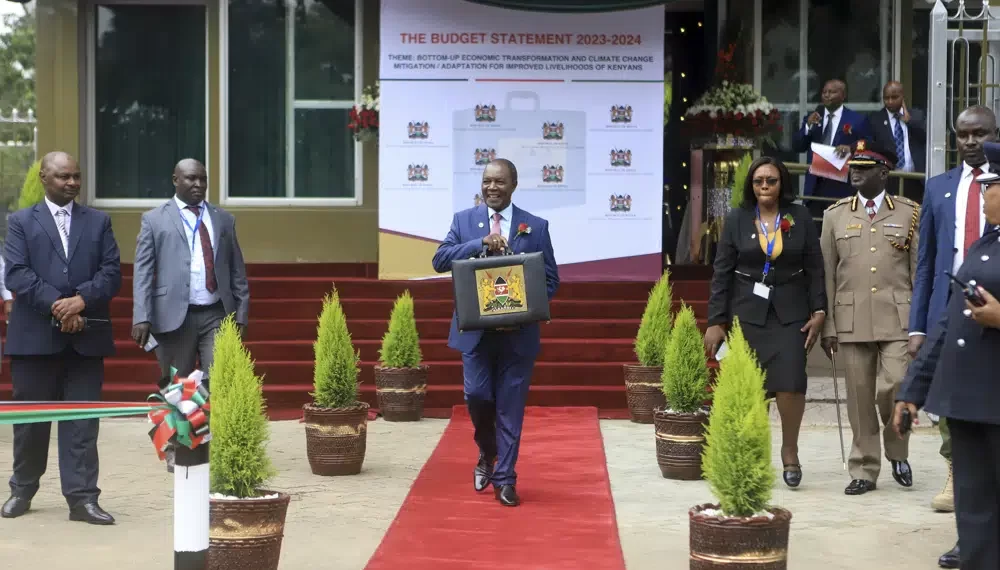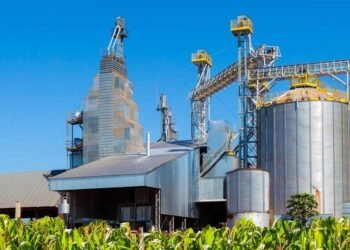Kenyans are bracing themselves for tough times after legislatures approved tax hikes, that have been contested by the pro government supporters. They claimed that, the President promised to lower the cost of life.
Regarded as the economic center of East Africa, Kenyans would be affected by the tax on petroleum products, doubled from 8% to 16%, which is likely to raise the cost of goods and services. One of President William Ruto’s supporters claimed that, since taking office last year, things have only gotten worse.

“He said he was going to make life easier for us hustlers. We are now unable to afford food. Prices are higher than they were before elections,” hairdresser Evelyne Adhiambo said.
Taxes have been levied at a rate of 32.5% for individuals making above 500,000 shillings and 35% for those making over 800,000 shillings.
Some Kenyans would now have to fork over roughly 40% of their income, due to the new tax hikes, which also included new home taxes of 1.5%, and medical insurance taxes of 2.5%. This would be the most taxes that employees would ever pay, according to Teresia Kathina, a 26-year veteran of the government. “This feels cruel because of the inflation rates,” she said.
According to economist Aly Khan Satchu, the new legislation “represents the highest tax rate across every segment.”

However, due to tax increases on small firms’ overall sales from 1% to 3%, they would also be feeling the effects. Businesspeople predicted that, this would put an end to the small businesses that have already experienced financial troubles, since the COVID-19 outbreak began.
“They are essentially telling us to shut down, because we will not take loans to pay taxes,” said Moses Munyao, a wholesale shop owner in the capital, Nairobi.
Reducing cost of living was a key part of Ruto’s election campaign messages. Ruto campaigned that, previous President Uhuru Kenyatta, who was born into a wealthy family, and never felt hungry in his life, allowed food prices to “skyrocket.”
Ruto’s victory in the election was partly ascribed to his appeal to voters as a fellow “hustler” who came from poor beginnings to hold prominent positions in government, including Vice President under Uhuru Kenyatta.

On the other hand, in order to decrease borrowing for a government, that is suffering with huge public debt of 9.4 trillion shillings ($67 billion), and has been categorized by the World Bank as a high risk of debt distress, the President has attempted to defend the hike in taxes.
The new bill is scheduled to be signed into law by the president before the beginning of the fiscal year for the government on July 1. President Ruto is currently in Paris for a conference on enhancing the global financial effort to combat poverty and climate change. It has not yet been decided when a court challenge contesting the new tax package would go into hearings.
The increased tax on petroleum products has generated a lot of debate. In order to protect buyers, the previous administration introduced subsidies rather than raising it.

The economist Satchu claimed that, the IMF has long supported the change of the gasoline tax and that it may have served as a “soft precondition” for the $1.1 billion loan deal that was recently announced for Kenya.
“It’s a relatively frictionless tax for the government to collect. However, clearly it will create pronounced ripple effects through the economy in that it will raise prices across the economy and further crimp and reduce incomes, which have already been under downside pressure.”
Aly Khan Satchu, An Economist.
According to him, the tax on small enterprises will damage businesses who are operating at a loss while also increasing the number of taxpayers. In Kenya, some people think that this sector “has largely escaped the tax net, and therefore 3% remains sufficiently low for it to make more sense to pay the tax than take evasion measures,” Satchu said.
READ ALSO:Court Begins Hearing On Case Against Jair Bolsonaro























